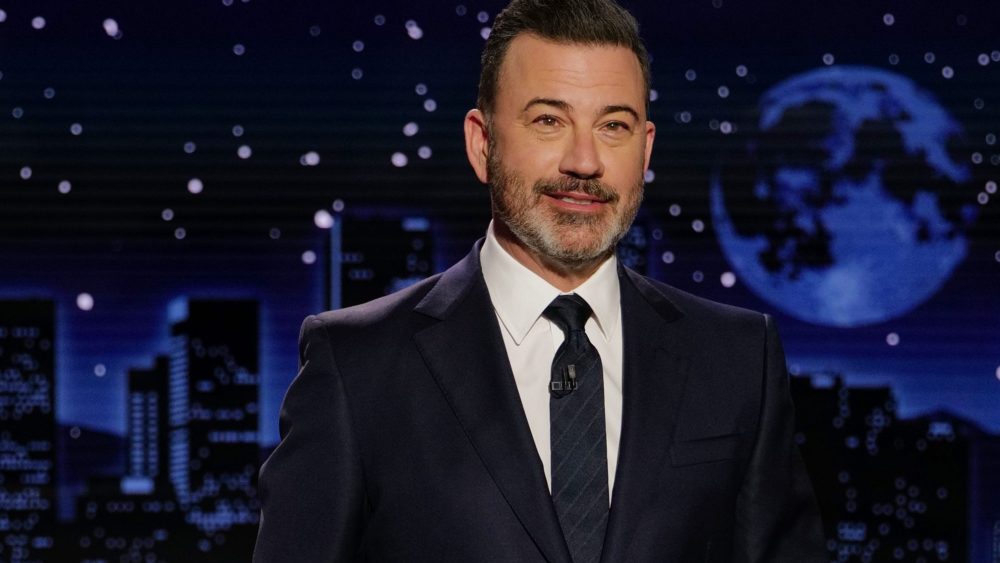Nexstar, the nation’s largest station owner, denied on Thursday that it pulled “Jimmy Kimmel Live!” off the air due to pressure from FCC Chairman Brendan Carr.
The company announced the decision hours after Carr threatened to take action against ABC affiliates over Kimmel’s comments about Charlie Kirk’s killer. Carr also urged affiliates to preempt the show.
Asked whether Nexstar’s decision was in any way influenced by Carr’s remarks, Gary Weitman, the company’s chief communications officer, said “No.”
“The decision to preempt ‘Jimmy Kimmel Live!’ was made unilaterally by the senior executive team at Nexstar, and they had no communication with the FCC or any government agency prior to making that decision,” Weitman said.
Nexstar needs FCC approval to acquire Tegna, the fourth-largest broadcaster, which would require lifting the station ownership cap, which allows broadcasters to reach no more than 39% of the national audience. Weitman also denied the Kimmel decision was influenced by the pending merger.
ABC indefinitely suspended Kimmel’s show on Thursday after Nexstar and Sinclair, another station owner, said they would not broadcast it. The controversy stems from Kimmel’s monologue on Monday, in which he said that the “MAGA gang” was seeking to “characterize this kid who murdered Charlie Kirk as anything other than one of them, and doing everything they can to score political points from it.”
Conservatives charged that Kimmel was seeking to falsely blame the MAGA movement for Kirk’s death, despite evidence and official statements that the killer held “leftist ideology.”
Appearing on Benny Johnson’s podcast, Carr called Kimmel’s comments “sick,” and suggested that the FCC would take action against licensees if Disney did not move against Kimmel.
Legal experts on Thursday said Carr may have crossed a line.
“You can’t threaten people,” said Ashutosh Bhagwat, a professor at the UC Davis School of Law. “Insofar as Chairman Carr was threatening to yank licenses because he didn’t like what Jimmy Kimmel did, that’s unconstitutional.”
But if the station groups preempted the show on their own, he added, “That’s fine. That’s not state action.”
The Supreme Court addressed the issue of government “jawboning” last year in a case brought by the National Rifle Association.
“A government official can share her views freely and criticize particular beliefs, and she can do so forcefully in the hopes of persuading others to follow her lead,” wrote Justice Sonia Sotomayor, for a unanimous court. “What she cannot do, however, is use the power of the State to punish or suppress disfavored expression.”
But as a practical matter, it would be very hard for ABC to go to court to block the Trump administration from applying economic pressure, said Derek Bambauer, a law professor at the University of Florida.
“The administration has figured out it has a potent weapon in running the cost calculus against the target of its political ire,” Bambauer said. “The FCC has a very good knowledge of the intricate workings of the broadcast TV market. You don’t have to threaten ABC if you can cause problems for people one layer down that ABC has to keep happy. It’s a very sophisticated technique.”
Since last December, Carr has been looking to drive a wedge between the national networks and local affiliates. In a letter to Disney CEO Bob Iger, Carr argued that the local stations are far more trusted than the national news. He also suggested that ABC was seeking to extract onerous concessions from its affiliates.
In the interview on Johnson’s podcast, Carr returned to that theme, saying it was past time for local stations to “step up” and reject national programming that does not meet the “public interest” standard for FCC licensees.
“One thing we’re trying to do is empower those local stations to serve their own communities,” he said. “Public interest means you can’t be running a narrow partisan circus.”
Andrew Alford, Nexstar’s president of broadcasting, said Thursday that the company’s 32 ABC affiliates would pull Kimmel’s show to “let cooler heads prevail.”
Sinclair, meanwhile, called on Kimmel to apologize to Kirk’s family and make a donation to Turning Point USA, and said it would not resume carrying the show until it is confident that standards befitting a national broadcaster are in place.
One longtime industry insider said that the station groups’ actions were “transparently self-serving and self-directed.”
“This is a craven tradeoff signal to Carr/Trump for ownership rule reform” and other issues, the person said, “in exchange for swallowing an abandonment of some First Amendment protections.”

